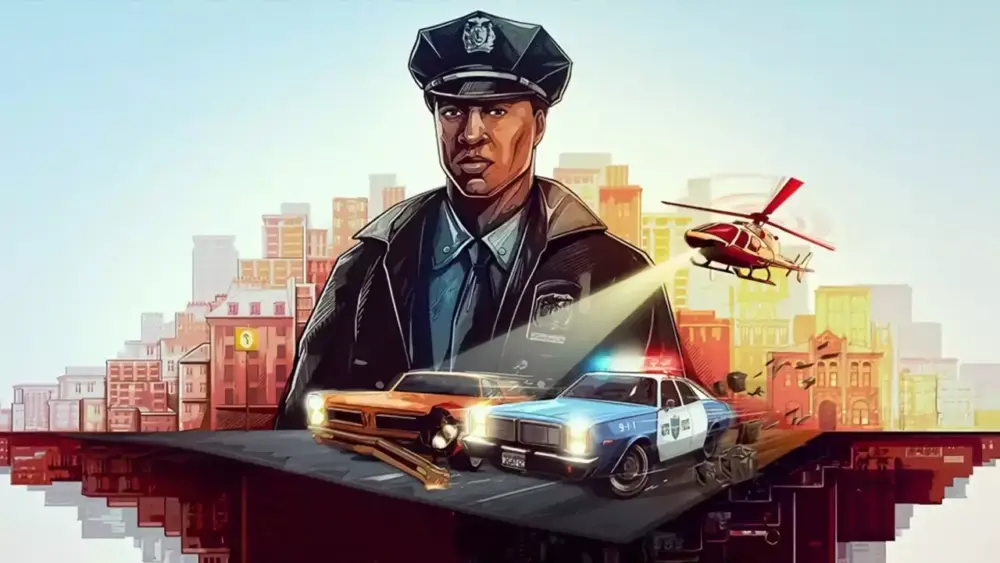Dishonored has become a cult-favorite stealth action game on PC, offering a unique combination of stealth, magical abilities, and non-linear storytelling. Released in 2012 by Arkane Studios, Dishonored has garnered critical acclaim and player love, becoming a benchmark in the immersive simulation genre.
Set in the eerie city of Dunwall, Dishonored is a tale of plague and political intrigue. The main character, the bodyguard of Empress Corvo Attano, is drawn into a conspiracy and accused of murdering the ruler. After escaping from prison, he becomes a masked assassin driven by a desire for revenge or the pursuit of justice. Each choice in the game affects the plot and the world around him, and the freedom to play allows for a combination of stealth, combat, and supernatural abilities.
Dishonored Game Walkthrough on PC: Freedom of Style
The project offers several strategies. You can move through the shadows, avoiding contact with enemies, or you can go all out, using deadly weapons and magical powers. One of the key mechanics is the “Chaos” system. The more kills you make, the darker the world becomes, and the ending changes depending on your decisions. The non-lethal approach makes the ending more optimistic, but it requires careful tactics, the use of sleep darts, stunning enemies, and clever workarounds. The flexibility of the gameplay allows each player to choose their own path, and the branching levels offer dozens of ways to achieve goals.
Dishonored’s Supernatural Abilities: A Unique Combat Arsenal
One of the main innovations in the stealth action genre is the abilities granted by the mystical creature known as the Alien. These abilities expand the player’s tactical options, allowing them to adapt their gameplay style in Dishonored on PC.

Examples:
- “Move” is an instant teleport for short distances, useful for stealthy movement.
- “Time Slowdown” is an ability to stop time and avoid dangerous situations.
- “Invasion” is the control of living beings, including rats and guards.
- “Dark Vision” is the ability to see through walls and predict the actions of enemies.
Dishonored’s Non-Linear Story and Varied Endings: How Decisions Change the World of the PC Game
 The development of the story is based on the choices that the player makes throughout the session. Each act leaves its mark on the environment, influencing the ending, the behavior of the characters and the environment in Dunwall. The flexibility of the narrative makes each passage unique, and the mechanics of “chaos” determine what the ending will be.
The development of the story is based on the choices that the player makes throughout the session. Each act leaves its mark on the environment, influencing the ending, the behavior of the characters and the environment in Dunwall. The flexibility of the narrative makes each passage unique, and the mechanics of “chaos” determine what the ending will be.
If Corvo Attano acts covertly, avoids killing, or uses non-lethal methods to eliminate enemies, the city remains relatively stable, its residents do not lose hope, and the plague spreads more slowly. This path leads to a “good ending,” where Dunwall restores order and the main characters have a chance for a better future. In this case, the allies treat Corvo with respect, and society remains more secure.
When using a mixed tactic, where stealth is alternated with open-ended assassinations, the level of chaos grows moderately. This leads to a “neutral ending”, where the city remains in an unstable state but is not completely destroyed. Some allies begin to question Corvo’s motives, and the streets are filled with additional threats.
However, if the protagonist chooses a path of brutality, eliminating everyone in their path and disregarding the consequences of their actions, the level of chaos rises rapidly. Dunwall is plunged into darkness, its streets filled with riots, the guards become more aggressive, and the enemies act more harshly. This style of play leads to a “bad ending”, where the city is finally destroyed and the fate of its inhabitants becomes tragic.
Stealth mechanics in the PC game: Dishonored stealth in its purest form
The gameplay is based on a tactical approach, where success depends on stealth, planning and choosing the right moment to attack. The project offers exclusive mechanics, thanks to which the passage becomes fascinating and diverse.
Lighting plays a key role in the process of playing Dishonored on PC. Shadows allow you to remain unnoticed, and the ability to turn off light sources helps create shelters where they did not exist before. The use of hiding places, window sills, balconies, and ventilation ducts opens up alternative paths to the target, allowing you to bypass security and enter the building without noise.
Enemies have advanced artificial intelligence, reacting to sounds, suspicious movements, and changes in the environment. If a guard notices an open window or a body on the ground, they will start patrolling the area, and the alarm will attract other enemies. This forces players to think ahead and avoid making mistakes that could lead to unwanted confrontations.
Additional mechanics, such as the use of magical abilities, expand the player’s tactical options. Teleportation allows for instant movement in the shadows, avoiding direct confrontations, while the ability to see through walls helps predict enemy routes. All of this makes stealth not only effective, but also dynamic, allowing you to solve your tasks using different methods.
The vibrant world of Dunwall: the atmosphere and details that bring the city to life
Dunwall is not just a backdrop for the events, but a fully-fledged living organism with its own history, political intrigues, and social issues. The world of Dishonored on PC is a city inspired by Victorian England, but with steampunk elements. The narrow streets, industrial factories, ship docks, and luxurious mansions create a contrast between the wealthy neighborhoods and the infected slums filled with beggars, criminals, and rats.
The city reacts to the player’s actions. The higher the level of chaos, the more panic on the streets: residents become more aggressive, the plague spreads faster, the number of corpses increases, and rats fill the alleys. If Corvo acts secretly, the city remains orderly, and residents continue to live their lives as usual.

Each district is filled with interactive elements, such as notes, newspapers, audio logs, and riddles, which help to immerse players in the game’s lore. Reading the letters of the aristocrats, the servants’ diaries, and the guards’ messages reveals hidden plots, betrayals, and the characters’ ulterior motives.
The game’s visual style is meticulously crafted. The dark palette, which combines gray tones with warm artificial lighting, adds to the atmosphere of decay, while the detailed textures of the buildings, worn-out furniture, and rusty structures create a sense of crisis in the city.
Comparing Dishonored with Deus Ex on PC: What do they have in common?
The question of similarity with Deus Ex arises regularly, as both projects belong to the genre of immersive simulators.
Similarities:
- Non-linear gameplay and freedom of choice.
- The ability to use stealth or aggressive tactics.
- A deep lore and a detailed world.
Differences:
- Dishonored relies on magic abilities, while Deus Ex relies on cyber implants.
- Deus Ex has more RPG elements.
- Dishonored offers more compact but intense levels.
Conclusion
 Dishonored PC game is a true stealth action game standard, offering a well-thought-out world, a variable passage and an unforgettable atmosphere. Arkane Studios project has become a classic, rethinking the genre of covert operations and adding elements of magic and non-linear narration.
Dishonored PC game is a true stealth action game standard, offering a well-thought-out world, a variable passage and an unforgettable atmosphere. Arkane Studios project has become a classic, rethinking the genre of covert operations and adding elements of magic and non-linear narration.
 en
en  ru
ru  de
de  ar
ar  es
es  nl
nl  hi
hi  fr
fr  it
it  pt
pt  el
el 











